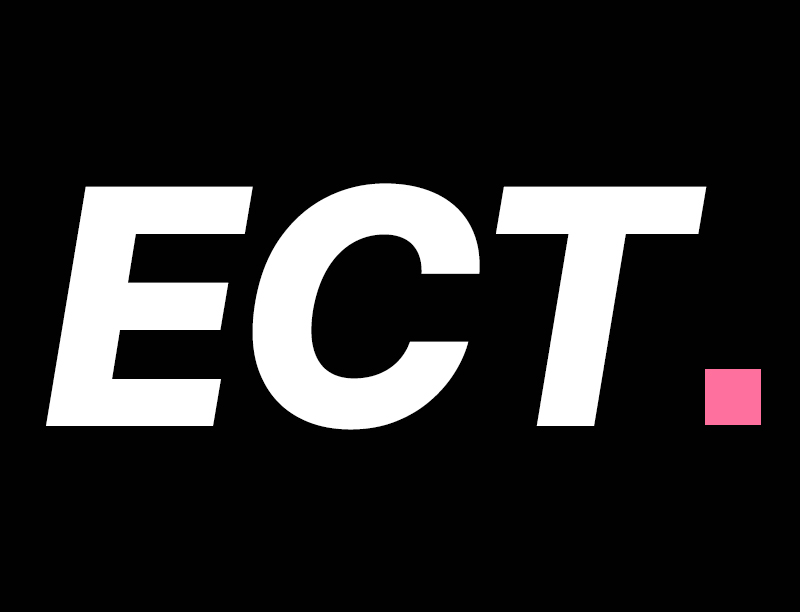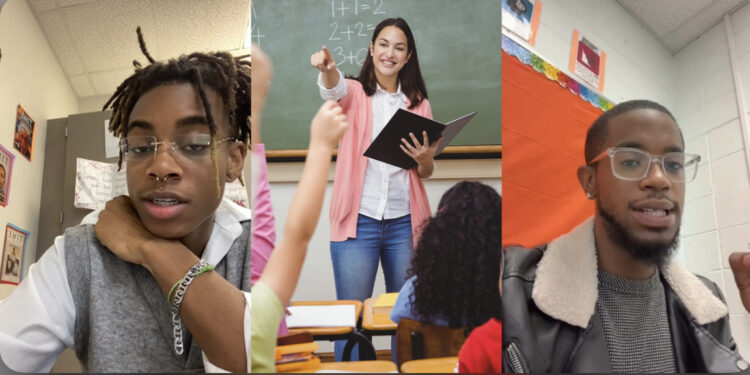Teachers have harnessed the power of TikTok to shed light on the contemporary classroom’s challenges hoping to get the attention of parents.
A viral video, shared on September 19, featured a teacher from the Atlanta area who raised concerns about the academic performance of their seventh-grade students, revealing that a significant number of them are operating at a level equivalent to fourth grade or, in some cases, even lower.
According to People the creator, who goes by “QBskiiii” on TikTok, said in the clip, which has been viewed nearly 4 million times as of publication.
“The fourth grade is being nice,”
“I still have kids performing on the K, one, two and third grade levels,” the educator added. “I could probably count on one hand how many kids are actually performing on their grade level.”
@qbthedon Lets chat!! #fyp #viral #teachertok ♬ original sound – QBSkiiii
Subsequently, numerous educators from various regions across the country have utilized the “stitch” feature on TikTok to disseminate their comparable experiences, as reported by USA Today.
An individual known as “MycahAngelou,” hailing from the northern Houston area, shared that their seventh-grade English students exhibit significant deficits in reading, writing, and text comprehension, falling far below the expected standards for their grade level.
“These babies cannot read, they cannot write, and they cannot comprehend,” said the creator, who claimed to work at “one of the more affluent schools” in the area.
“I’m not being funny, I’m being dead serious,” the teacher added, sharing that kids are “constantly” asking how to spell words like “window,” “important” and “though.”
In the caption, the educator wrote, “It’s hell out here.”
Another creator, who goes by “N.” and also works in the Atlanta area, claimed their 10th and 11th grade literature students were performing at a 6th or 7th grade level “when it came to reading, analyzing, critical thinking” and more.
In June, the National Assessment of Educational Progress revealed that 13-year-olds’ math and reading performances had hit the lowest level in decades, according to The New York Times.
Additionally, 31% of students surveyed during the test said they “never or hardly ever” read for fun, up 9% from 2012.
Multiple teachers raised concerns about the impact the COVID-19 pandemic has had on students since it began in March 2020.
It’s a gap that teachers claim existed before the pandemic began, but has grown exponentially in wake of the pandemic.
“The education system as a whole, we have not really done anything to really fill that gap effectively,” said a TikTok creator named K.D. in response to QBskiiii’s post.
Instead of filling the gaps and helping students master material, teachers suggest that the students are being passed along from grade to grade in order to get them through the system.
Now, teachers say they are struggling to balance the gap between what the kids don’t know and what they need to know while at their current grade level.
“It’s as if we are teaching skyscraper classes to students who have only built one story houses,” K.D. explained in a video. “They don’t even know how to add on another story and we talking about building skyscrapers. It’s not going to make sense because there has been no proper transition.”
One issue students face, according to the TikTok teachers, is a lack of confidence in the classroom. Many teachers have modified their assignments to help students achieve small successes first in hopes of allowing them to do more in the classroom moving forward.
Motivation among students is another big concern. One teacher said they regularly struggle to get kids motivated enough to work on or complete assignments.
“It’s not that the kids don’t have the knowledge, they don’t care to have the knowledge,” the educator explained in a second video. “It would be different if kids were struggling, or had gaps and wanted to know more and wanted to try and wanted to get better. … That’s not the case here.
However, these teachers do not blame the students for the position they are in. “I don’t think it’s their fault,” MycahAngelou said in one video.
Several educators have observed that the educational disparity was already expanding prior to the onset of the pandemic.
A Massachusetts teacher, recognized by USA Today as Laverne Mickens, boasting over twenty years of teaching experience, asserted that the “No Child Left Behind” policy, implemented during George W. Bush’s presidency, paradoxically resulted in “leaving every child behind.”
Rather than helping students succeed in the classroom however, it ushered in a new era of standardized testing. “COVID just pulled back the curtain and lifted the veil, so everybody else now sees what we’ve been seeing for years,” Mickens told USA Today.
As a result of the learning gap, many teachers are now being put in a difficult position. Do they teach their students the important things they missed at a previous grade level? Or do they teach what is expected of their students’ current grade level?
Numerous TikTok educators express a sense of unacknowledged dedication as they strive to maintain a delicate equilibrium in delivering the highest quality education to their students.
Teachers nationwide grapple with rising incidents of violence and disruptive behavior in their classrooms, all while experiencing minimal improvements in their compensation.
“It’s tough and it’s so draining,” K.D. said in one video. “And you’ll want to say, ‘Oh, but at the end it’s rewarding!’ But I mean, I feel like that effort is not recognized, to be honest. Imma still do it, though, because that’s just what I care about. That’s what I want to do. I actually want my babies to know stuff.”
new dumbass parents sticking their 2 year old child in front of a tablet so they can watch cocomelon all fucking day then wonder why their kid is 7-8 and cant read their own name LOL https://t.co/nDW2WOG3JB
— Icewood?? (@levinsevin) September 21, 2023
and
Y’all: yAlL kIdz KnOW lYRicS bUt CaNt ReaD
The kids at school: ???? pic.twitter.com/aUCcLgyC12
— Kombucha Mami (@cakezilllla) September 23, 2023
and
and this is why so many kids cant read or write properly and have the vocabulary of 3 grades below theirs https://t.co/pK7YVeENHc
— K (@cinnamonthiccc) September 23, 2023
and
@anesiareneewrld Had to give me 2 cents on this #4thgradereadinglevel topic . These children are STRUGGLING parents PLEASE do your part❗️ #teachertok #educationcrisis #literacycrisis #teacherburnout #nochildleftbehind #tutoring ♬ original sound – AnesiaRenee
and
@daydreaming.about.data We CAN kick #illiteracy to the curb! Join the #structuredliteracy #movement! I’m here to help! #abcnews #nbcnews #strugglingreaders #reading #phonics #teachersontiktok ♬ original sound – Rebecca | Science of Reading
What parents can do to increase a child’s reading ability
Start Early: Begin reading to your child from infancy. Even though they may not understand the words initially, they will become accustomed to the rhythm and sounds of language.
Create a Reading-Friendly Environment: Make sure your home has plenty of age-appropriate books and reading materials. Keep books within easy reach so your child can explore them independently.
Be a Reading Role Model: Children often emulate their parents’ behaviors. Show them that you value reading by reading books, magazines, or newspapers yourself.
Read Aloud Together: Reading aloud to your child is one of the most effective ways to improve their reading skills. Choose a variety of books, including those above their current reading level, to expose them to new vocabulary and concepts.
Discuss the Story: Engage your child in discussions about the story or content you’re reading together. Ask open-ended questions to encourage critical thinking and comprehension.
Visit the Library: Regular library visits expose children to a wide range of books and encourage a love of reading. Many libraries also offer storytelling sessions and reading programs for kids.
Set a Reading Routine: Establish a regular reading time each day. Whether it’s before bedtime or during a quiet afternoon, consistency helps make reading a habit.
Encourage Independent Reading: As your child grows, encourage them to read independently. Let them choose books that interest them, even if they are below their current reading level. Gradually introduce more challenging books as they progress.
Use Technology Wisely: Consider incorporating educational apps and e-books into your child’s reading routine. Just ensure that screen time is balanced with traditional reading.
Celebrate Milestones: Celebrate your child’s reading achievements, whether it’s finishing a book, reaching a certain reading level, or reading a challenging passage. Positive reinforcement can motivate them to continue reading.
Be Patient: Every child progresses at their own pace. Avoid putting too much pressure on your child, and focus on making reading an enjoyable experience.
Seek Help if Needed: If you notice your child struggling with reading, consider consulting a teacher or reading specialist for guidance. Early intervention can be critical in addressing reading difficulties.
Expand Beyond Books: Encourage reading in different forms, such as comics, graphic novels, magazines, or even audiobooks. The goal is to foster a love for all types of reading material.
@babybookdoc The call to action here is clear. This is a joint effort; we need to work with teachers to ensure our children are doing the best they absolutely can in the classroom. Thank you @QBSkiiii for spreading this awareness. With love, Dr. R (Literacy Project, 2019) *Tips are strictly my opinions. Be sure to consult with your child’s professional care team on what works best for your family* #teacherlife #parentingtips #parenthack #raisingreaders #bookworm #reportcard #educationtiktok #librarytiktok #blackteachersontiktok #blackteachers #blackmomtok #blackfamilytiktok ♬ original sound – Dr. Ramona







